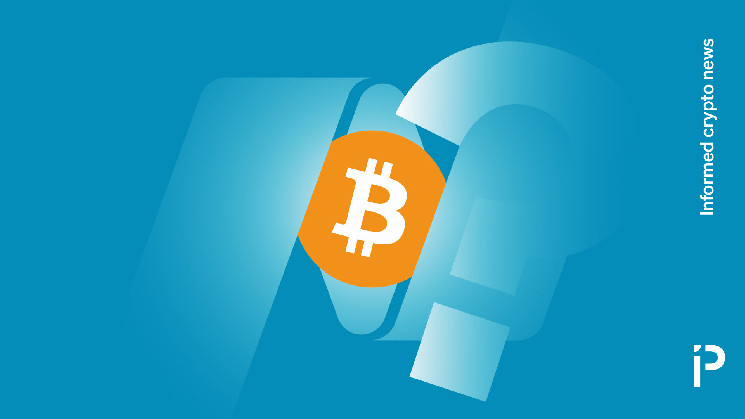It’s rumored that NASDAQ once owned bitcoin seized from dark web marketplace Silk Road and, by extension, customers of disgraced Japanese crypto exchange Mt. Gox.
The story begins in December 2014, when Barry Silbert’s Bitcoin Investment Trust spent less than $17 million to acquire 48,000 bitcoins seized from the Silk Road at a US Marshals auction.
That trust would later morph into the Grayscale Bitcoin Trust (GBTC), but in late 2015, there was a time when NASDAQ itself might have controlled those bitcoins.
To understand the NASDAQ connection, we need to look back into Silbert’s career, specifically to 2004 when he founded SecondMarket.
SecondMarket originally gained popularity before the creation of bitcoin as a way to acquire employees’ equity in non-public companies via a secondary market-like platform (hence, ‘SecondMarket’). It diversified considerably over the next nine years and by September 2013, Silbert had launched Bitcoin Investment Trust, a bitcoin-only fund for high-net-worth individuals.
The month after the trust was launched, the FBI shut down Ross Ulbricht’s Silk Road and seized its massive trove of tens of thousands of bitcoin, placing it into the custody of the US Marshals.
Barely five months later, Mark Karpelès’ Japanese-American Mt. Gox bitcoin exchange declared bankruptcy and less than a year after that, Bitcoin Investment Trust purchased the government-seized bitcoin from the Silk Road.
The following year, NASDAQ acquired SecondMarket, Bitcoin Investment Trust, and the bitcoin itself, which today would be worth somewhere in the region of $3 billion.
Silbert’s 175X gain versus customers’ 0X gain
Although a select few Mt. Gox victims have received a small number of repayments from the bankruptcy, most customers still haven’t received anything. Indeed, its bankruptcy has deprived them of their assets for over a decade. Similarly, the US government simply seized Silk Road bitcoin outright from operators and customers, rendering them an equal return of $0.
Silbert’s fund — in contrast to Silk Road customers who will never be refunded, or Mt. Gox victims who still await their refunds — has enjoyed a 175X gain on the bitcoin held since its December 2014 US Marshals auction win.
Some people speculate that NASDAQ was particularly interested in its bitcoin holdings when making the 2015 acquisition while others are unclear whether SecondMarket still owned rights to any US Marshals-purchased bitcoin at that point.
Ultimately, it is unclear whether SecondMarket, its Bitcoin Investment Trust, or accredited investors of the Bitcoin Investment Trust became the ultimate beneficial owner(s) of the US Marshals auctioned bitcoin.
Similarly, with SecondMarket, Mt. Gox, and Grayscale remaining private companies since their inception, there are limited public filings to track the ownership of SecondMarket’s auction-acquired bitcoin.
Barry Silbert is one of bitcoin’s earliest investors
In any event, there are theories that connect Barry Silbert to even more US government-seized bitcoin. For example, Cumberland of DRW is widely rumored to have won a third US Marshals-auctioned lot of 27,000 bitcoin. Cumberland has a known relationship with Barry Silbert’s Digital Currency Group, which was a sister company of SecondMarket.
Some blockchain observers believe that some of those 27,000 bitcoins ended up at Barry Silbert’s Grayscale, which had a deep relationship with Digital Currency Group’s Genesis and Tyler and Cameron Winklevoss’ Gemini via its doomed Gemini Earn program.
Read more: Barry Silbert’s Grayscale wants GBTC to commingle bitcoin ‘from time to time’
In the end, it is not difficult to trace bitcoin on the blockchain. However, it’s almost impossible to trace bitcoin whose ownership changes via paper contract within private companies. In the case of Bitcoin Investment Trust (now GBTC) bitcoin and other US Marshals lots, ownership rarely changed via on-chain transfer. As is often the case with private companies and non-public trusts, ownership changed frequently by signing paper contracts.
When someone buys a share of GBTC, the seller doesn’t transfer bitcoin on-chain. Nevertheless, over $160 million worth of bitcoin truly changes ownership every day via off-blockchain GBTC trades. Similarly, tens of billions of dollars of crypto assets change hands every day off-blockchain across the world’s crypto exchanges. This frustrates the work of on-chain sleuths.
Tracing government-seized bitcoin to NASDAQ itself
Tracking the history of Mt. Gox and Silk Road bitcoin from US Marshals auctions is certainly illuminating but it’s only a small part of the larger story. The blockchain does show that NASDAQ ended up managing — whether on its own behalf of on behalf of customers — some US government-seized bitcoin with ties to Silbert’s prescient purchases over a decade ago.
Similarly, US Marshals bitcoin auctions certainly link entities like Grayscale, Cumberland, Genesis, Digital Currency Group, and Gemini.
Every $1,000 of bitcoin one decade ago is now worth $100,000 and for anyone lucky to have had the capital to bid on Silk Road bitcoin auctions, and the wisdom to have never sold, the appreciation is certainly life-changing. The gains from these early auctions have capitalized some of the largest crypto companies in existence today.
 protos.com
protos.com
